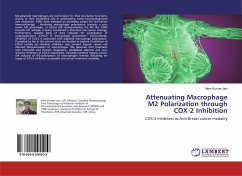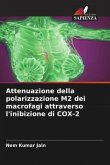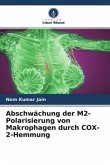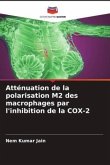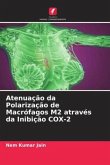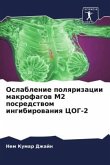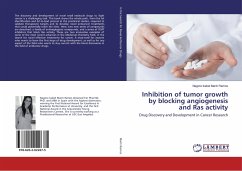M2-polarized macrophages are well known for their pro-tumor functions. Owing to their established role in potentiating tumor-neovasculogenesis and metastasis, TAMs have emerged as promising target for anti-cancer immunotherapy. . Hindering macrophage polarization towards a pro-tumor M2 phenotype, or better still reprogramming the M2 like TAMs towards M1 subtype is being considered a beneficial anti-cancer strategy. Furthermore, sizeable body of data indicates for participation of cyclooxygenase-2 (COX-2) in macrophage polarization. Concordantly, inhibition of COX-2 is associated with impaired macrophage polarization. Prompted by this in the current study we decided to explore if inhibition of COX-2 activity via chemical inhibitors may prevent hypoxic cancer cell induced M2-polarization of macrophages. We observed that treatment with Etoricoxib and Flunixin meglumine, established selective and non-selective inhibitors of COX-2 respectively, markedly inhibited hypoxic cancer cell induced of M2-polarization of macrophages thereby indicating for usage of COX-2 inhibition as possible anti-cancer treatment modality.
Bitte wählen Sie Ihr Anliegen aus.
Rechnungen
Retourenschein anfordern
Bestellstatus
Storno

